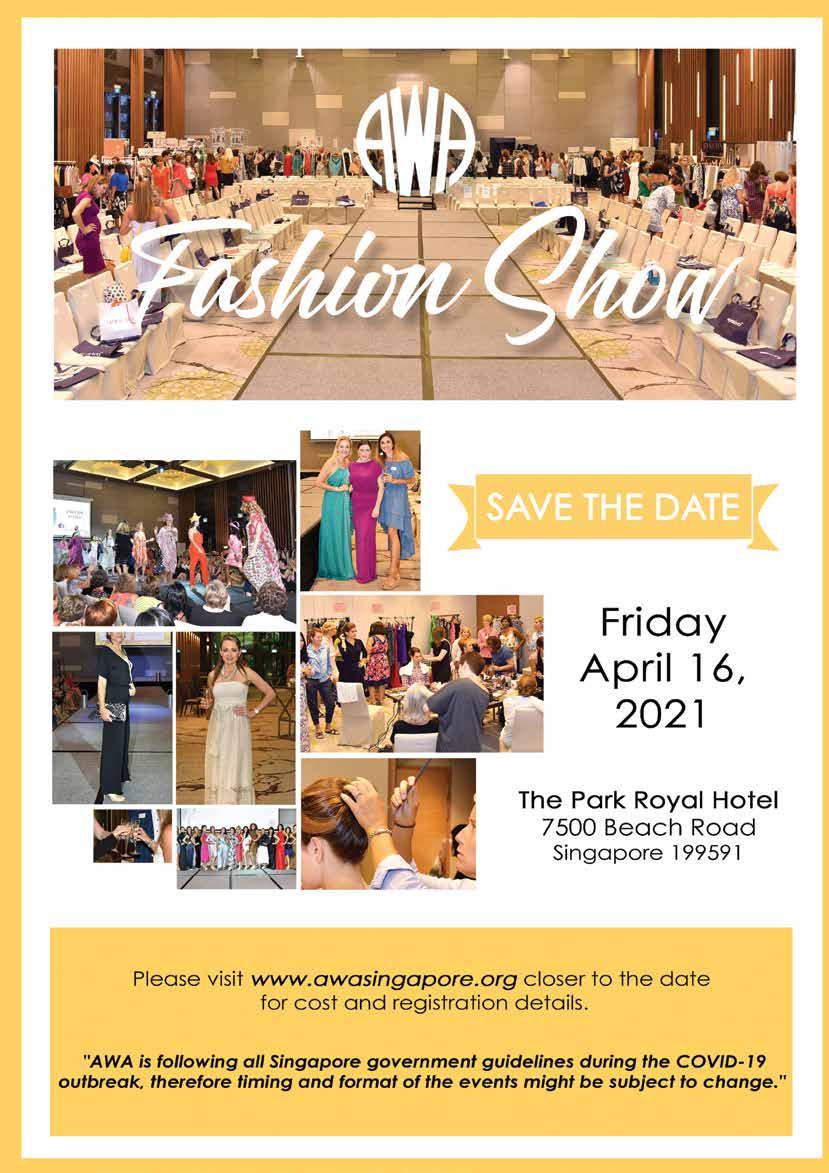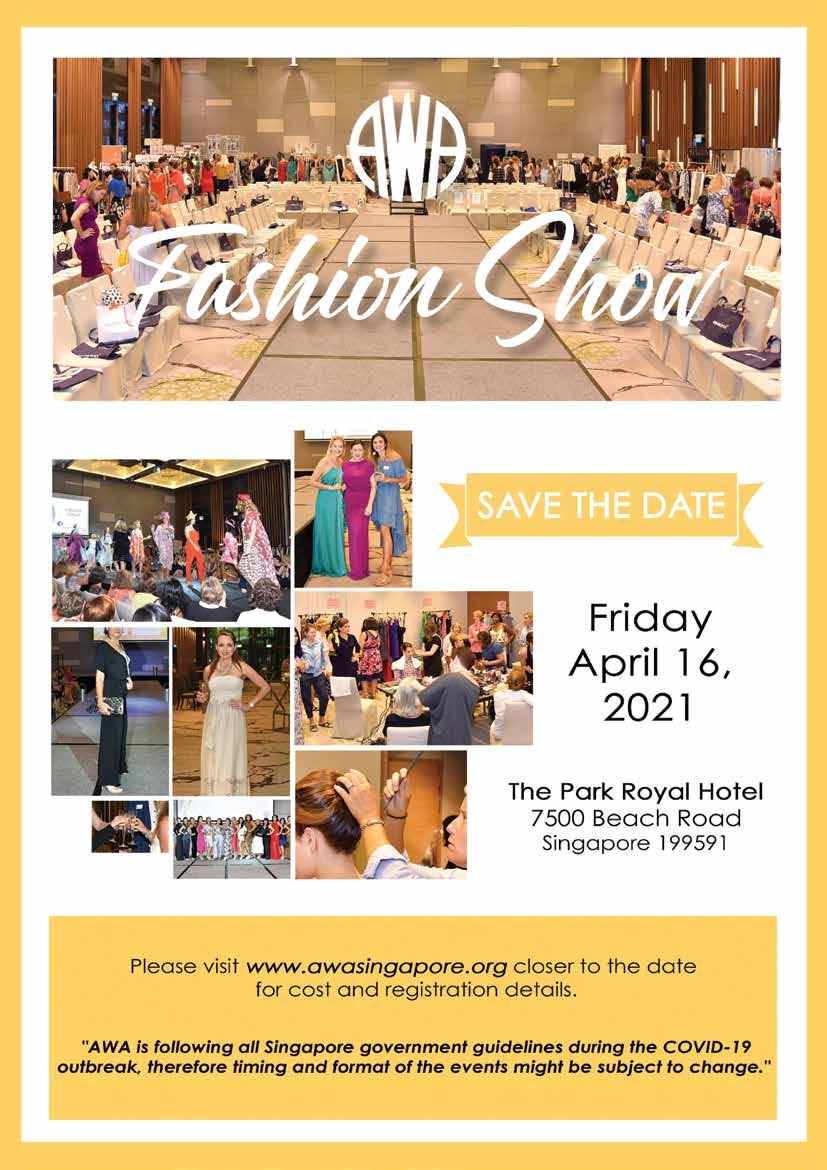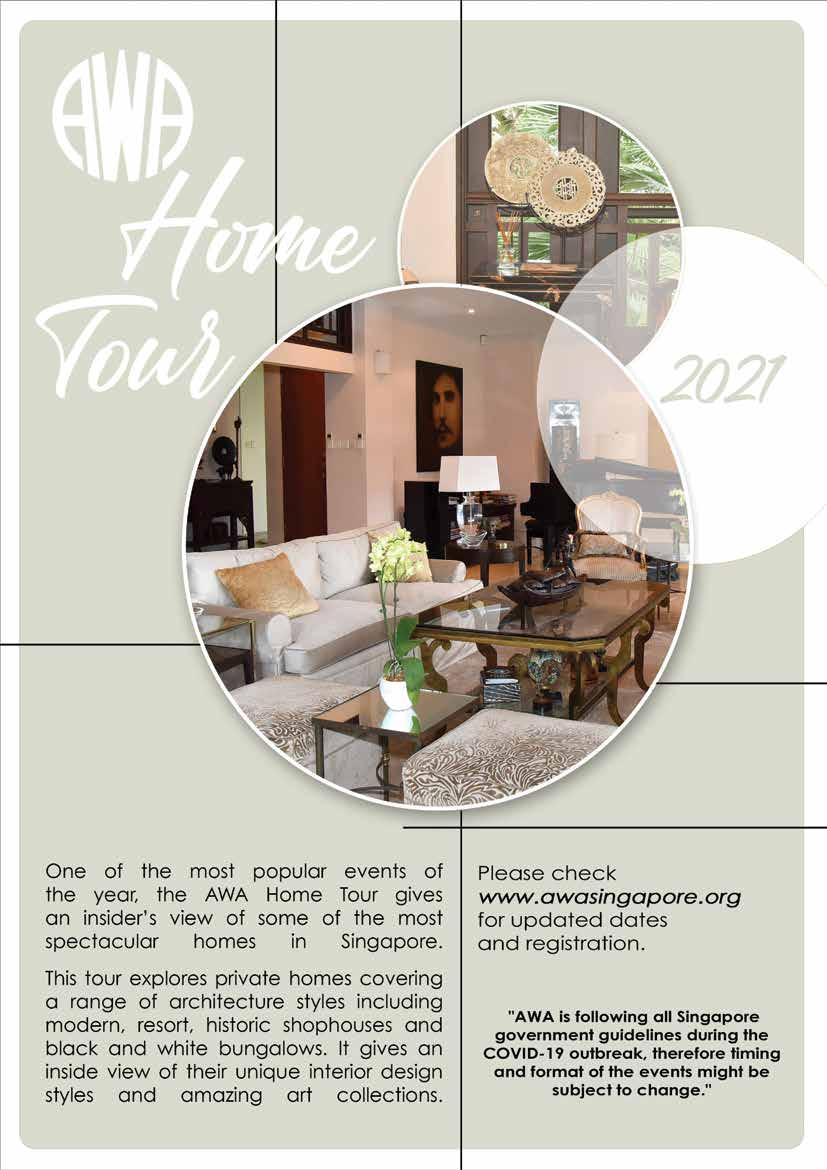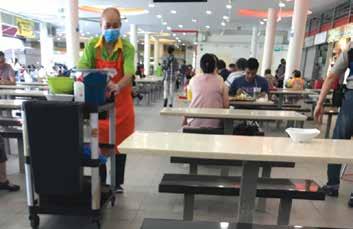
3 minute read
You're Not Alone
You're Not Alone... Really
coping wtih the ups and downs of being an expat
Advertisement
Adjusting How We See the World
The way we see the world determines how we react to things in it, namely change, which all of us have experienced, as we’ve moved from far and wide to live here in Singapore. It’s certainly not easy to change countries, culture, currency and more. But, please know that you’re not alone. With that, understanding how we use filters to approach our lives -- and learning how we can change them -- can help us adjust and live our best lives, no matter how far from home we are. In July 2020, AWA sponsored a Zoom Member Talk on the topic of Neuro-Linguistic Programming (NLP). The presentation certainly lent perspective on how we choose words, or filters, to describe our experiences. Presenter Lindley Craig, a longtime AWA member, is a certified NLP Trainer and President of the NLP Association Singapore. Her company provides NLP practitioner training as well as self-development and corporate courses. Lindley shared with us the "coin test," which can help us to examine one of the many ways in which our brains are programmed. She explains: “Put three different coins on a table and ask the question, ‘What do you notice about the coins?’" Participants have to provide at least five answers to allow her to know what "program" is unconsciously directing their thinking. The simplicity of the question is key to the process. She adds, "In making it simple, I will not trigger one program over another. It is meant to reveal the program they’re running as they answer the question." If the person notices only the differences in the coins - different shapes, denominations, sizes, numbers, symbols, etc. - then we say the person sorts information primarily by looking at differences. This type of person could be considered argumentative, because when someone else makes a statement of fact or opinion, they will come back with a “different” view. When she hears, “It was a beautiful weekend,” a "differences" person will find the one
Written by Andrea McKenna Brankin
thing that went wrong. “It rained on Saturday for 30 minutes.” They don’t mean to be argumentative. It’s the unconscious program at work. If the person notices just the similarities in the coins - same country, all coins all have writing and numbers, all are made of metal, etc. - then we say the person sorts primarily through looking at sameness. This type of person agrees a lot (even when they don’t especially want to agree). She will like things to be the same. Change isn’t greeted with enthusiasm for "sameness" types of people.” If the person observes both similarities and differences in equal measure, they can sort experiences by both categories, says Lindley. For sameness people, she adds, it helps to notice the things in a new environment that are similar to their old one, including groceries, clothing brands or just a park to walk around. “It’s important to them that they spend time noticing new things that are the same as the old. Building routines like those from their former home is also helpful.” She says development occurs when they allow small changes that stretch them beyond their sameness comfort zone. “It needs to be SLOW though. Abrupt changes cause a lot of stress for sameness programs,” she says. According to Lindley, “For people more likely to notice differences, a move to a foreign country will be awesome and they will find joy in how things are so different. It will be a fun challenge for them. However, if they are like me, living on the same small island for more than twenty years, they may go a bit stir crazy.” They’re more likely to want to move apartments, jobs or even furniture every few years. Maybe they’ll move their furniture in their house a lot. Lindley observes that it’s all to satisfy their wish for things to be different. From Lindley Craig and NLP, we see ways it might be easier to move forward once we recognize how our brain's "programs" affect how we face change and challenges. The AWA is here to support you in your life here, with a range of groups and activities. Some of them are very much like what you may have done somewhere else, and some could be very different, and you can choose what helps you adapt best to your life in Singapore.
Andrea runs the AWA Listen Ladies Group, providing confidential support at monthly meetings. listenladies@awasingapore.org












